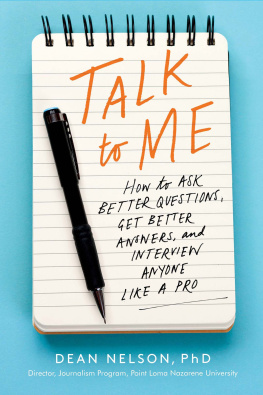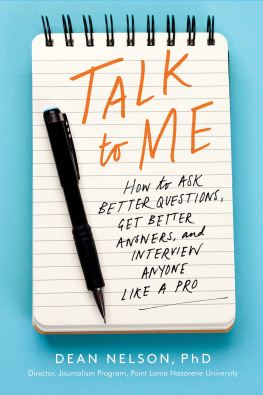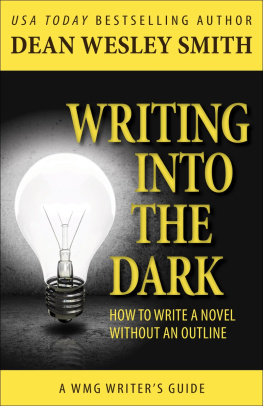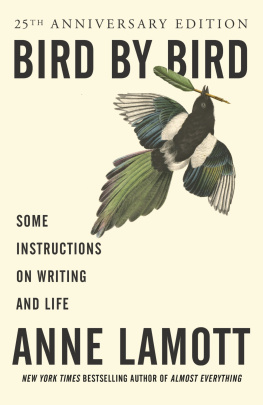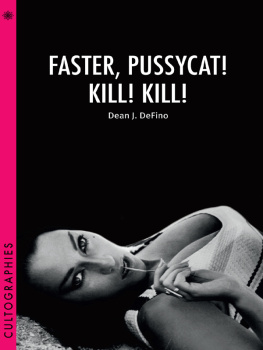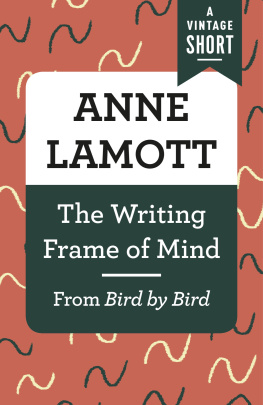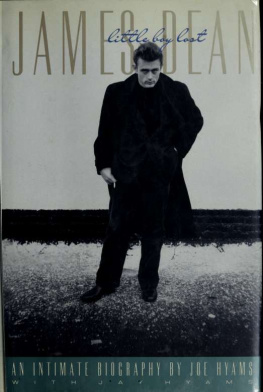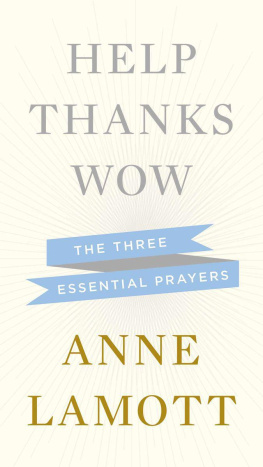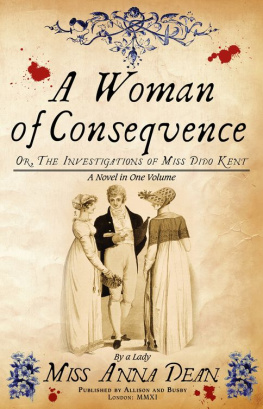H ERES MY BEST EXCUSE: I was young and didnt know any better.
When I was in my mid-twenties, in my first journalism job in central Missouri, I saw a calendar listing that said a jazz musician was going to do a concert in my town. That was my beat, and I naively assumed hed have some time to talk to me while he was here, so I called around trying to reach him. I ended up with a phone number for his record label and called it, blissfully unaware that I was calling California from the Midwest, and it was 7 A.M . there.
A groggy voice answered and I explained who I was and what I was trying to do. The voice mumbled that I could probably reach the musician at the hotel where he was staying. And what hotel might that be? I asked. He named the hotel in Boston. And to whom was I speaking? I asked. When he told me his name, I looked at the information I had about the record label. YupI had just called the head of the label out of a deep sleep.
As I said, I was young and didnt know any better.
So I called the hotel and, again, the phone rang a long time. Another voice answered. I guess I woke him up, too. It was 10 A.M . in Boston. What a sleepy bunch these music people were!
I told him who I was, and asked if I could spend some time with him when he was in my town in a few weeks.
Sure, I guess that would be okay, he said.
Is there any chance you could make that exclusive to me, and you dont talk to any other reporters? I knew I was pushing my luck with that one.
For that youll have to pay me, he said. He was clearly waking up.
Im sure I cant do that, so Ill see you when you get into town.
I ended up spending the entire day with him as he gave high school jazz band workshops, and was backstage with him before and after his show that night. He wasnt the warmest person Ive ever met, but it was fun to see this legend take the teenagers (and me) seriously. He walked slowly; his short, heavyset body was relaxed as he moved from chair to music stand at the high school. We talked off and on for hours. I made some mistakes while interviewing him, and even angered him at one point (note to self: Dont ever ask a jazz musician about the irony of coming out of a life of poverty and oppression and charging an enormous fee for performing). You would think that even a guy in his twenties would know better than to ask Dizzy Gillespie about something as personal as money. But back then, I was under the illusion that getting the perfect interview was 90 percent getting the right person to interview and 10 percent luck or instinct. I figured that once I got him to agree, the rest would take care of itself.
What I have learned over the last forty years as a journalist, working with publications such as the New York Times, the Boston Globe, the San Jose Mercury News, and multiple magazines and running the Writers Symposium by the Sea in San Diego, is that there is much more to an interview than just getting the person to talk to you.
More than thirty years later, when I was back in that town and took my old editor to lunch, he brought up this event.
I still cant believe you got that interview, he said.
We Have Questions; We Want Answers
I have learned a lot about interviewing since the Dizzy Gillespie eventfirst and foremost that interviewing is more common than most of us realize. We ask questions every day because we need to know something, or because we need information so our next decision will be an informed one, or we want to be able to share wisdom, or we want to avoid trouble, or maybe we are just nosy.
Mostly, we are trying to gain perspective on something. If we depend solely on our own thoughts and observations and dont take into account the thoughts and observations of others who are not just like us, we run the risk of coming to inaccurate conclusions and possibly taking harmful actions. Other perspectives reveal our own biases and assumptions. And think of what could have been accomplished (and avoided!) in our history had we just asked a few more questions. Asking good questions keeps us from living in our own echo chambers.
Think of the questions we have heard or have askedquestions as simple as: What is the secret to your chocolate chip cookies? What happened at school today? Did you think about the consequences? Would you like to have dinner with me? Will you marry me? Why is the coffee always gone? On the one hand, those are simply questions. But they can lead to other questions and become conversations that will draw out personalities and understandings. They can become a kind of interview.
The questions that surround us may be simple and obvious; they may be cosmic and profound. But they all serve a function. Consider the following scenarios from everyday lifein this case mine:
There is a plate of spaghetti on the floor, and the dog is eating it as if he had been waiting his entire life for this moment; his tail is wagging hard enough to spin a turbine. I look at my young son. He is standing, frozen in place, hands outstretched, eyes as big as the plate that is upside down on the floor directly under his hands. I look at my daughter, who is three years younger than my son. She is at the kitchen table, silently crying. Not because of the lost spaghetti or the stained carpet, but because she thinks I am going to punish the dog.
What happened? I ask.
Thats an interview question. Its a dumb interview question (more on asking dumb questions later), because its obvious what happened. But its an interview question nonetheless. Maybe a better question would be How did this happen? And then What do you think is about to happen? But well talk about that more in .
I CALL THE BANK BECAUSE Im having trouble with my account. I always call customer service people with a certain dread, because I assume they wont know anything.
How can I make your day better? the voice asks.
Thats an interview question. I answer, and she follows up with another question. Shes trying to help me figure something out.
T HE FLASHING LIGHTS IN MY rearview mirror could mean one of two things: 1) The highway patrol is going to nail that guy who blew past me a few seconds ago. Cool! I love it when they get the guys in the BMWs; or 2) The highway patrol is coming after me for blowing past the Buick a few seconds ago.
Its me. I pull over to the shoulder and roll down my window. The officer swaggers up and leans toward me.
Do you have any idea how fast you were going?
Thats an interview question. Sort of. Its a bit rhetoricalhe doesnt really need an answer before he writes me a ticket.
T HE SNOW IS MARVELOUS, AND today feels like a good day to try something new. I head down a trail I have never skied before, assuming it couldnt be that difficult on a day with such glorious powder conditions. Im not a great skierId call myself adequateso when I see the trail sign with double black diamonds as I speed past, I get a little concerned. Too late. Im suddenly on a super-advanced slope. Now I am airborne. I wipe out in a spectacular manner, skis and poles flying in various directions. My shoulder and helmet take most of the impact. I stay in a prone position, taking mental note as to whether I can feel all four limbs, all ten digits. This crash was performed beneath a breathless audience on the chairlift passing above. Several cheer. Someone from the lift leans forward and down a little.
Are you okay? she asks.
Its an interview questionfor a very brief interviewto determine whether she needs to call the ski patrol.
T HE THERAPIST WELCOMES ME TO his office, points to a chair for me to be seated, and sits behind his desk. We look at each other in silence for a few moments.

